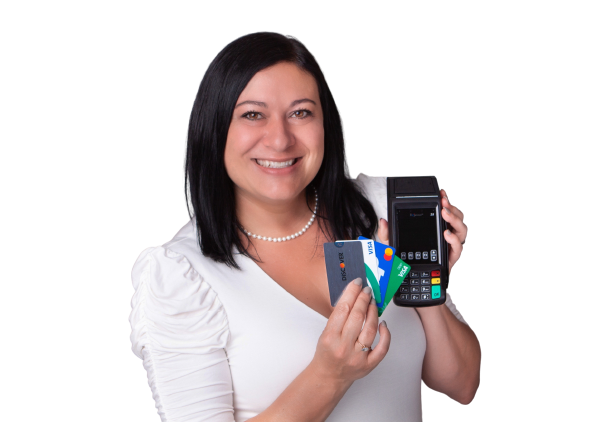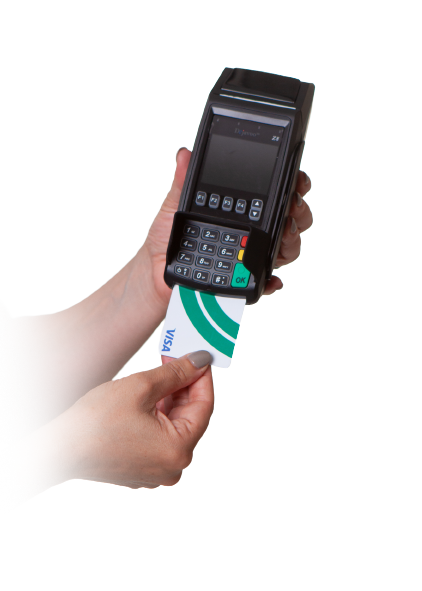Cloud-based POS systems are changing how local shops work. Store owners can now track inventory, reach customers, and run their operations from anywhere with an internet connection. These systems don’t just replace the cash register—they unlock faster checkouts, let staff help customers on the sales floor, and keep sales data safe and up-to-date.
Shops no longer have to rely on old software or worry about server crashes. Updates happen automatically, and new features arrive without any hassle. With real-time reports and easy tools, local businesses make smarter decisions, adapt quicker to trends, and offer a smoother shopping experience. Cloud POS brings big-store flexibility to small shops, helping them stay sharp in a crowded market.
Understanding Cloud-Based POS: Core Features for Local Shops
A cloud-based POS (Point of Sale) system is not just a fancy cash register in the cloud—it’s the backbone of modern retail. For local shops, it replaces bulky on-site servers and outdated software with a nimble solution you can run from almost any device connected to the internet. This flexible approach gives smaller retailers access to the same smart tools that big stores use, but without the high upfront costs. Let’s break down the key features that give cloud-based POS systems an edge.
A stylish store checkout counter featuring a floral bouquet and digital payment system.
Cloud Infrastructure
With a cloud-based POS, all your shop’s vital sales and inventory data live on secure, remote servers. You don’t need your own IT department, because these systems tap into world-class security and backup from major service providers. Think of it as renting a vault in a high-security bank—your business records are safe, even if your store’s computer crashes or gets lost.
- No local servers needed: Reduces clutter, costs, and headaches.
- Automatic backups: Data is protected in case of power outages, hardware failures, or disasters.
- Instant updates: Improvements and new features roll out automatically in the background.
Real-Time Data Sync
Cloud POS stands out for its ability to sync sales, inventory, and customer info as it happens—all in real-time. This means staff never have to wonder if they’re looking at outdated numbers.
- Live inventory tracking: See what’s in stock, even while you’re on the go.
- Sales reporting: Get up-to-the-minute performance snapshots.
- Smooth multi-location support: Multiple shops or pop-ups? Inventory and sales data stay in harmony.
Remote Access
Ever needed to check your sales from home—or on vacation? Cloud-based POS makes it easy. Because everything is online, you simply log in from any internet-connected device.
- Manage anywhere: Review sales or make changes from your laptop, tablet, or smartphone.
- Help staff remotely: Support your team with real-time troubleshooting, even when you’re off-site.
- Stay informed 24/7: Keep an eye on your business, whether you’re across the street or across the country.
Multi-Device Compatibility
Forget being tethered to one cash register. Cloud POS works across modern devices, letting your team flex with the needs of the day.
- Run on iPads, tablets, phones, or computers: Take sales to the sales floor or speed up checkout lines.
- Staff mobility: Help customers anywhere in your store, not just behind a counter.
- Easy scale-up: Add new registers or mobile checkouts as your business grows.
In summary, the core features of a cloud-based POS system—secure cloud infrastructure, real-time sync, remote management, and broad device support—set local shops up to respond faster, sell smarter, and serve customers better. These foundations open up the freedom to grow and adapt in ways that just aren’t possible with old-school systems.
Ways Cloud POS Drives Flexibility in Local Retail Operations
Cloud-based POS isn’t just another tech upgrade—it transforms how local shops adjust, grow, and serve customers. Whether it’s managing your shop from the beach, syncing online and in-store sales, or popping up at a weekend market, a cloud POS keeps you nimble and ready for anything. Let’s look at the key ways this technology helps local retailers stay one step ahead.
Remote Access and Mobile Management
You’re not chained to the cash wrap anymore. With a cloud POS, business owners and staff can jump into their sales dashboard from any device—laptop, tablet, or phone—wherever there’s internet.
- Check sales at home, on the go, or on vacation.
- Adjust inventory or pricing instantly from your phone.
- Support team members in real-time, even if you’re off-site.
For staff, this means tools follow them across the sales floor, letting them help shoppers, answer questions, and complete purchases wherever needed. If you’re managing more than one location or a fleet of employees, you can review schedules, track hours, and approve requests remotely. The entire business goes wherever you do.
Real-Time Inventory Tracking and Reporting
Say goodbye to guesswork and messy spreadsheets. Cloud POS systems update inventory levels automatically with every sale—no matter where it happens.
- Reduce stockouts by watching supplies drop in real time.
- Spot shrink, overstock, or sales trends before they become a problem.
- Run reports on today’s, week’s, or month’s performance with one click.
You get a live picture of what’s really happening, helping you make smart decisions on reordering or running promotions. Need to check if you’re running low on your best-seller? A quick glance at your dashboard gives the answer. Speed and accuracy can mean the difference between a lost sale and a loyal customer.
Scalability for Multi-Location and Pop-Up Operations
Growth doesn’t need to be hard—or expensive. Cloud POS lets shops scale up quickly, whether you’re opening a second storefront or cashing in at a local event or holiday market.
- Add a new register or pop-up site with no special hardware.
- Set up temporary locations with just a mobile device.
- Keep sales, inventory, and customers synced everywhere automatically.
Adding new locations used to mean buying extra servers, calling IT, and dealing with setup headaches. Now, you just log in, set up the location, and start selling. This low-friction approach helps local retailers stay nimble, pivot during busy seasons, and test new ideas with minimal risk.
Integration with E-commerce and Marketing Tools
Running an online store, loyalty club, or text campaign? Cloud POS makes these connections simple with built-in or plug-and-play integrations.
- Sync your products and inventory with your e-commerce site in real time.
- Reward customers with unified loyalty programs across in-store and online.
- Launch promotions and track results directly from your POS dashboard.
Instead of juggling different tools, all the important data flows together—making your marketing smarter and your customer experience smoother. Sell online and in-person without double-managing your inventory, and quickly adapt to shoppers’ expectations wherever they find you.
Cloud POS systems help local shops adapt faster, serve customers better, and stay ready for what’s next.
Security and Data Management in Cloud POS Systems
Keeping customer data and sales information safe is a top priority for every local shop using cloud-based POS. These systems have to balance flexibility with security, making sure that critical data isn’t left unprotected—no matter where or how staff operate. Let’s break down the three pillars of cloud POS security: encryption and compliance, reliable backups, and smart user management.
Data Encryption and Compliance Standards
A person analyzing cybersecurity data on a laptop in a dimly lit room. [https://images.pexels.com/photos/5475814/pexels-photo-5475814.jpeg?auto=compress&cs=tinysrgb&dpr=2&h=650&w=940] Photo by Antoni Shkraba Studio [https://www.pexels.com/@shkrabaanthony]
Cloud POS platforms treat customer information like gold—they lock it down with strong encryption both at rest (when data is stored) and in transit (as data travels across the internet). Here’s what this really means for your shop:
- End-to-end encryption scrambles every card payment or personal detail, so even if someone intercepted the data, it would be unreadable.
- PCI DSS compliance is a must for any software handling card payments. Cloud POS providers go through regular audits and testing to meet this strict global standard.
- Tokenization takes credit card details and turns them into random strings—these tokens are useless to criminals, even if they’re stolen.
Many providers take it further, using multi-factor authentication and even biometric logins for extra protection. With cyber threats getting smarter, some platforms are adopting zero-trust architecture—no one gets in without constant verification.
Automated Backups and Disaster Recovery
Losing sales data to a computer crash or security breach isn’t just frustrating—it could threaten a shop’s whole business. With cloud-based POS, robust backup and disaster recovery tools are built in.
Here’s how cloud POS keeps your shop ready for anything:
- Automated, routine backups: Sales, inventory, and customer data are continuously backed up to secure, offsite servers without you needing to remember or press a button.
- Geo-redundant storage: Copies of your data exist in multiple locations, guarding against regional outages, fires, or floods.
- Quick restoration protocols: If a system or device fails, you can restore all your info and get back to selling, often within minutes—not days.
Advanced systems now use immutable backups—snapshots of your data that can’t be altered or deleted by malware. This is key for bouncing back from ransomware attacks that target backup files themselves.
Managing User Access and Staff Security Awareness
Technology is only as strong as the people using it. That’s why cloud POS systems put a spotlight on controlling access and boosting staff awareness.
Best practices in this area include:
- Role-based permissions: Staff only see and access what they need. For example, cashiers can’t tinker with settings, and managers can’t view other locations unless allowed.
- Multi-factor authentication (MFA): Extra login steps, like text codes or biometric scans, stop most account breaches even if passwords are stolen.
- Automatic session timeouts: Logins expire after periods of inactivity, reducing risk if someone leaves a register unattended.
- Ongoing staff training: Every employee—from owner to part-time cashier—should get regular updates on password habits, phishing red flags, and how to safely use POS devices.
Smart shops combine these tech tools with a culture of security. It’s about making sure everyone plays their part in protecting customer trust and business data.
With these layers in place, cloud-based POS helps local retailers stay nimble and secure—no matter how quickly trends or threats evolve.
Real-World Success: Case Studies of Local Shops Using Cloud POS
Cloud POS is more than just theory—it’s proven in the daily grind of neighborhood shops and cafes everywhere. Small retailers are swapping clunky cash registers for sleek tablets, seeing the difference show up in speed, staff productivity, and happier customers. Here’s a look at how real businesses are thriving with cloud-based POS.
Faster Checkout and Improved Customer Experience
A cheerful couple enjoying their time in a vibrant, small market shop filled with snacks. [https://images.pexels.com/photos/28494748/pexels-photo-28494748.jpeg?auto=compress&cs=tinysrgb&dpr=2&h=650&w=940] Photo by Huy Nguyễn [https://www.pexels.com/@simeart]
Local shops like Smith’s Corner Café and Laughing Man Coffee are perfect examples. By switching to mobile-first cloud POS, both shops dropped average transaction times by 30–60%. Staff aren’t stuck behind a counter waiting to ring up a line—they walk the floor, check out customers by their table, and even accept contactless payments outdoors at events.
Key benefits they’ve reported:
- Shorter lines boost impulse buys and keep people from walking out.
- Mobile checkout means every staffer can help, not just the person at the register.
- Customer-facing screens build trust by showing totals, rewards, and info in real time.
Cloud POS isn’t just about speed—it turns typical pain points into positive moments that shoppers remember.
Operational Efficiency and Reduced IT Burden
Small store owners used to sink hours into fixing POS terminals or updating old software. Cloud POS eliminates those headaches. Most systems (like Square, Clover, and SpotOn) push out automatic software updates, so shops always run the latest features—no technician visits or downtime required.
Real shops highlight these time-savers:
- Elimination of local server maintenance—No on-site hardware means no more surprise repairs or expensive service calls.
- Automatic backups and support—Sales and inventory data are safe online, and providers offer real-time help via chat or phone.
- Simple hardware needs—Most use off-the-shelf tablets or phones, slashing upfront costs.
Smith’s Corner Café estimates it saves thousands per year in tech costs and labor compared to their previous POS setup. Money stays in the business, and owners can focus on what matters—serving customers and building the brand.
Seamless Growth and Multi-Channel Selling
Once stuck with one register and paper receipts, local shops now open pop-ups or a second store without hitting pause. With cloud POS, businesses like The Laughing Man Coffee expand to new locations by just logging in and setting up shop—the system syncs inventory, sales, and even loyalty points across every site.
Success stories include:
- Adding a new shop or market stall by simply registering a new location in the POS dashboard.
- Launching an e-commerce site that pulls live inventory right from the same POS, so stock stays accurate both online and offline.
- Expanding customer rewards and order history from brick-and-mortar to mobile app or web, giving shoppers a smoother experience everywhere.
Retailers report saving days—sometimes weeks—of setup time versus traditional POS installs, and they scale operations without hiring new IT help. Cloud POS lets these shops act bigger than they are, all while staying lean and focused.
These real-world wins show cloud POS is not just a tech upgrade—it’s a toolkit for local shops to run smarter, sell faster, and grow on their own terms.
Key Considerations When Choosing a Cloud-Based POS System
Selecting the right cloud-based POS system is a big move for any shop wanting flexibility and growth. The options may seem endless, but not all systems are built the same. To get the best fit, consider features that drive your day-to-day efficiency, make sure your data is always secure, and calculate what the system really costs over time.
Assessing Features for Flexibility and Growth
A person using a touchscreen ordering system in a modern restaurant setting. [https://images.pexels.com/photos/12935078/pexels-photo-12935078.jpeg?auto=compress&cs=tinysrgb&dpr=2&h=650&w=940] Photo by iMin Technology [https://www.pexels.com/@imin-technology-276315592]
The real power of cloud POS lies in how well it adjusts to your unique business needs. Look for systems that make it easy to add new registers, manage mobile sales, and connect with popular apps like accounting, e-commerce, or loyalty platforms.
Focus on these features to support growth and flexibility:
- Scalability: Add new locations, registers, or staff accounts in minutes without hardware headaches.
- Mobile compatibility: Use tablets or smartphones to ring up sales anywhere in your shop—or even pop-up events.
- Multi-channel support: Sync inventory and sales across in-store, online, and mobile with no double-entry.
- Customizable dashboards: See the sales and inventory info that matters most, all in one place.
- Open integrations: Connect with other tools you already use, like QuickBooks, Shopify, or email marketing software.
Choose a POS that grows with your store. The right system makes moving to a second location or online as easy as clicking a button, not making another big investment.
Evaluating Security and Support
Trust is everything in retail—customers need to know their payment data is safe. Go beyond the sales pitch and ask tough questions about how the POS protects your information 24/7.
Key things to check for:
- Strong encryption: Data should be scrambled both in storage and as it moves online.
- PCI DSS compliance: Your provider must meet global payment security standards.
- Multi-factor authentication (MFA): Extra layers of login verification protect against many common attacks.
- Regular updates and patches: Stop threats before they start, without you lifting a finger.
- Role-based user controls: Only let staff access what they really need—no more, no less.
- Responsive support: Fast, helpful backup from real people—especially when you need it most.
Solid security and dependable support keep you focused on customers, not tech glitches or potential breaches. Pick a vendor with a proven track record, clear support promises, and real transparency around how they handle data.
Total Cost of Ownership and ROI
A cloud POS is an investment, not just a purchase. Look at the full picture, not just the monthly bill.
Break down your costs:
- Upfront expenses: Hardware (tablets, receipt printers) and setup fees.
- Monthly/annual fees: Subscription packages can add up with more locations and features.
- Add-ons and integrations: Some must-have features may cost extra.
- Hardware replacement: Tablets and mobile devices are less expensive than legacy POS units, but plan for upgrades.
- Downtime risk: Cheaper providers might lack reliable service, leading to sales lost during outages.
Smart retailers look at how fast a cloud POS pays for itself:
- Speed up checkouts: More sales, less waiting.
- Fewer IT headaches: Save on repairs and support calls.
- Accurate, real-time data: Smarter inventory and staffing decisions.
- Easier expansion: Lower risk when adding pop-ups or new shops.
Choose a POS system that brings clear savings, makes staff more productive, and frees up your time. If it delivers real value month after month, that’s the true return you want.
Conclusion
Cloud-based POS systems free local shops from rigid routines and costly tech issues. With real-time insights and easy access, owners run their business from anywhere—no fuss, just results. Flexible payment options and simple inventory updates strip away daily headaches and welcome new sales channels, new customers, and more possibilities.
This technology gives local shops the power to adapt quickly and handle busy seasons or sudden changes without missing a beat. Forward-thinking retailers are already using cloud POS to sharpen operations and strengthen customer loyalty. If you want your shop to stay nimble and ready for whatever comes next, now is the moment to explore a cloud-based POS.
Thanks for reading—your thoughts and stories can help other local shops grow smarter. Share your experience or questions below.






